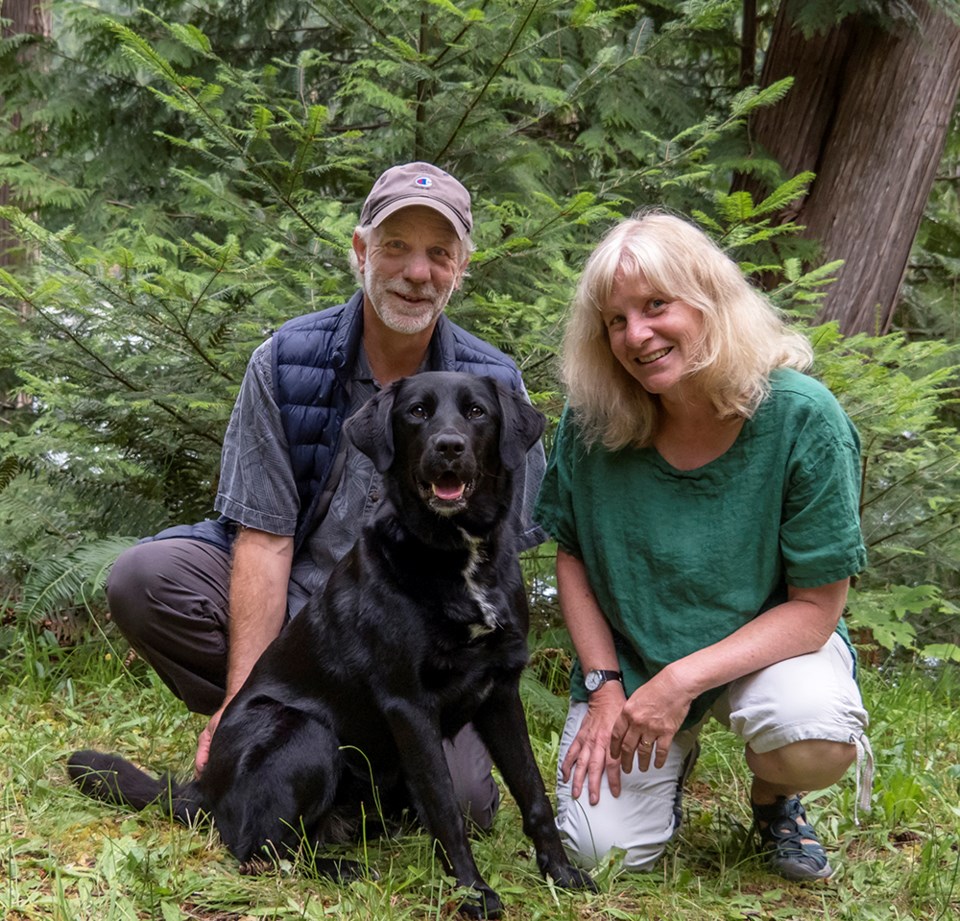Andrea Wirrell and Ross Vaartnou brought their puppy, Pepper, a 10-week-old Labrador Retriever mix, home in September 2020.
They expected the usual challenges that come with puppies, such as housetraining and chewing. They did not expect, however, that their puppy would growl and bark whenever she saw a person.
They did not expect the intense fear Pepper demonstrated, nor the time, energy and commitment it would take for her to feel safe and comfortable in the world. Most of all, they did not expect how much Pepper would teach them about fear and the emotional world of animals.
Pepper’s first teaching: help the dog feel safe.
It can be hard to think of a dog who is growling and barking as frightened, but that behaviour is an expression of her fear and discomfort and an attempt to make people go away. It is important to reduce and manage exposure to triggers so your dog is not exposed to the things that scare her.
Give her relief from those feelings and prevent her from rehearsing unwanted behaviours. Have a strategy for what to do if something comes up and intervene quickly when you see a situation developing, and before your dog has a chance to react.
If a reaction does happen, move away and help your dog recover. In this way, you are controlling the problem as best you can while you work on changing it.
Pepper’s second teaching: build new, positive associations with the scary things.
Dogs like Pepper have a skewed view of the world. They look at every person they see or meet as a potential threat when in fact the person intends them no harm.
Some dogs hold their feelings inside and withdraw, their behaviour inhibited. Others, like Pepper, act out and their behaviour escalates.
In both cases, the dogs are suffering. Change those feelings by creating new and positive associations to what is currently causing fear and distress through science-based, humane methods and tools.
Pepper’s third teaching: stay the course.
The road to change is not a straight line but one with twists and turns. It is easy to become discouraged when there are setbacks or it is taking a long time.
Pepper’s story shows us how much persistence pays off. Each good experience, every tiny step forward, builds resilience, confidence and optimism in the dog.
Finally, perhaps Pepper’s most important teaching: change happens for a dog within the context of a safe and supportive relationship with her family.
Andrea and Ross’s relationship with Pepper is based on love, affection, empathy for her feelings and attention to her needs, especially her need to feel safe. Pepper came to them hardwired for fear, barking at everyone, trying to send people away. That was all she knew how to do.
Through puppyhood and adolescence, her family has helped her to gain the perspective, confidence and skills to successfully meet new people. As she enters her third year, her circle of trusted human friends is growing.
Life is still challenging for Pepper and setbacks still occur. But every day the fog of fear lifts a little more and Pepper’s true self – loving, sociable, joyful – shines through.
Sandy Middleton is a dog trainer and behaviour consultant based in the qathet region. For more information, go to bestfriendsdogtraining.ca.
Join the Peak's email list for the top headlines right in your inbox Monday to Friday.



